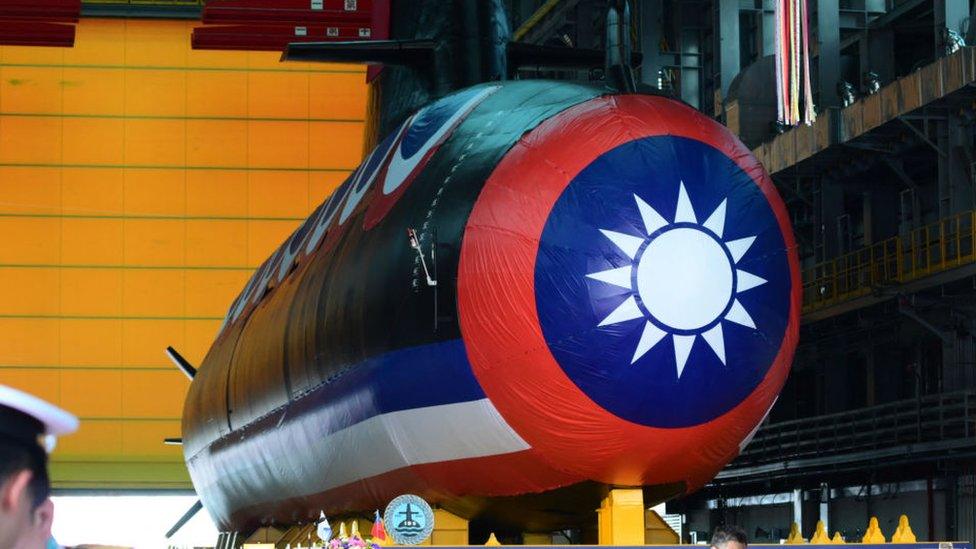Taiwan election: Kuomintang party asks voters to choose between war and peace
- Published
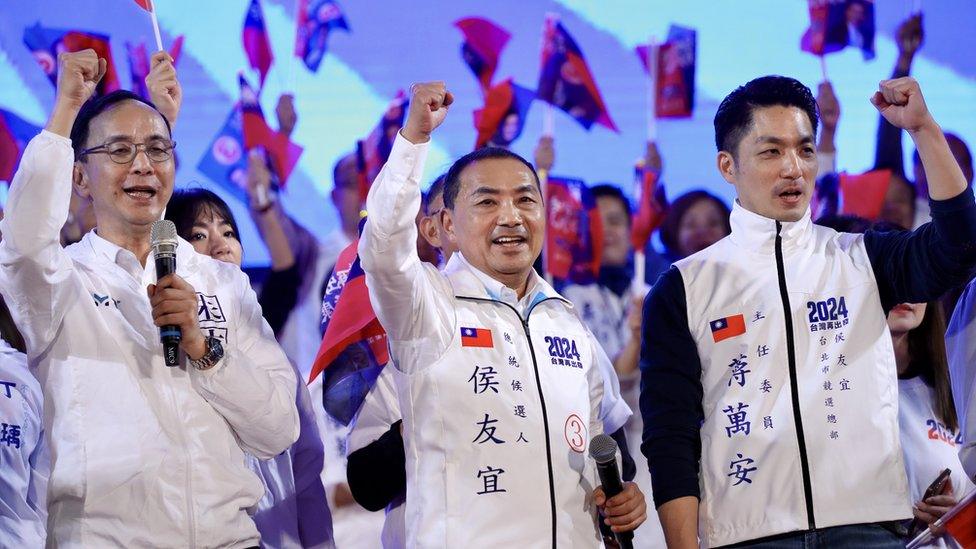
Hou Yu-ih (centre) is the presidential candidate of the main opposition party Kuomintang (KMT)
The rock music was booming, the dancers on stage were gyrating, and the crowd was going wild waving thousands of Taiwan flags.
The political rally for the Kuomintang's (KMT) presidential election candidate was in full swing on Saturday.
"Give me a president!" shouted the host. "Hou Yu-ih!" the crowd roared.
As Mr Hou looked on, his running mate Jaw Shaw-kong took the microphone and launched a broadside against the ruling Democratic Progressive Party (DPP).
"What road are they taking? The road to war!" he said, wagging his finger. "The road that leads Taiwan into danger, the road that leads to uncertainty!"
As Taiwan edges closer to the presidential election on 13 January, the KMT is banking on convincing voters they face a choice between war and peace with China.
Beijing claims the self-ruled island as its own, and while it promotes "peaceful reunification" it has also not ruled out the use of force in taking Taiwan.
In the last eight years of pro-sovereignty DPP rule, China has relentlessly ramped up its military presence around Taiwan, conducting what is known as greyzone warfare.
The DPP has countered that they also want peace and stability - while maintaining Taiwan's path of progress.
A recent viral campaign advertisement showed outgoing President Tsai Ing-wen calmly driving on quiet country roads with her party's presidential candidate William Lai. She then gets out and Mr Lai takes the wheel with his running mate Hsiao Bi-Khim by his side. "Drive better than me," Ms Tsai urges them.
But some are sceptical he can do the job.
At the KMT rally in Taoyuan, an area known for its hardcore supporters, many of those interviewed by the BBC were more concerned with the economy and cost of living. But relations with China also loomed large.
"I didn't use to think there could be war, but now we have this possibility and it's scary. The DPP is just too aggressive, I want to go back to peace with the KMT," said Ms Shi, a 45-year-old service worker accompanying her parents.
"We need to learn from China and how they take care of their citizens. Look at their high-speed railways, their infrastructure. China is so advanced, even their phones are better. We don't have that," said a 58-year-old woman named Ms Tu.
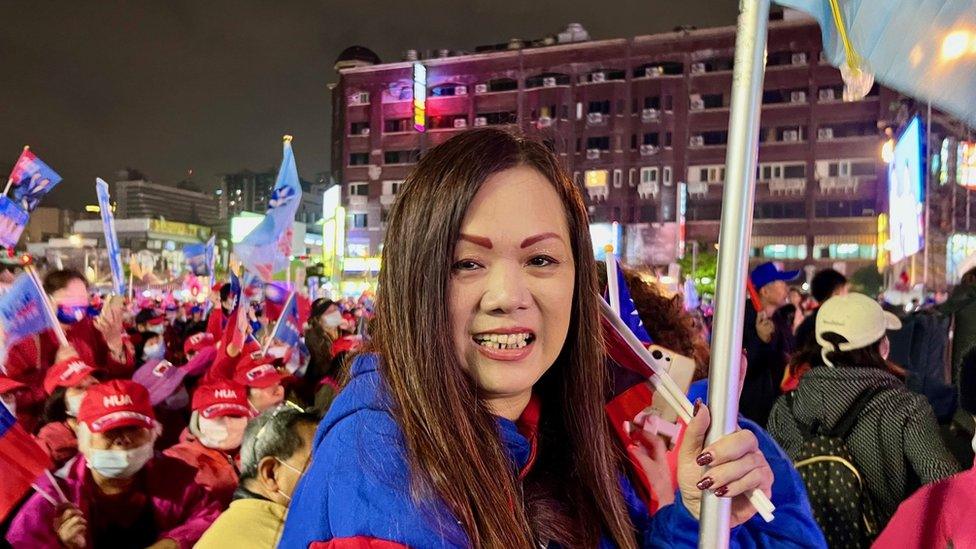
Ms Tu at the weekend rally
"I'm not really saying we should unify, but we should be working together more. We share the same ideals, and we are the same people as China," said KMT party member Mr Li.
'A difficult balancing act'
Decades ago, the KMT fought the Chinese Communist Party, its bitter enemy in the Chinese civil war, before fleeing to Taiwan in defeat. Now it favours warmer ties.
This largely has to do with the increasing intertwining of their economies. As the biggest buyer of Taiwanese exports, China has become an important economic lifeline.
Hundreds of thousands of "taishang", Taiwanese businessmen, depend on the mainland for their livelihood. Many taishang are part of the KMT's traditional supporter base.
Within the KMT, whose party colour is blue, the "deep blue" faction that advocates the closest ties with China still holds significant power.
Many of them are descendants of the so-called 1949 generation which fled from China that year when Mao Zedong's communist army took control. They still have strong emotional ties to the mainland.
In recent years though, the KMT has faced an increasingly difficult balancing act.
Even as it seeks close ties with China, it wants to remain relevant to an electorate that is increasingly distancing itself from the mainland. After decades in power in Taiwan, it has lost some recent elections to the DPP.
Polls consistently show that most Taiwanese see themselves as possessing a unique Taiwanese identity and prefer the status quo - neither declaring independence nor unifying with the mainland.
The KMT has had to dial down its message, insisting it is not "pro-China" but rather pursuing friendlier relations.
It has fielded Mr Hou as its presidential candidate, an ex-cop seen as a "light blue" moderate and a "benshengren" who comes from a local Taiwanese family. In recent days Mr Hou responded to Xi Jinping's renewed vow of unification saying he would "forever protect Taiwan's democratic system" and freedoms.
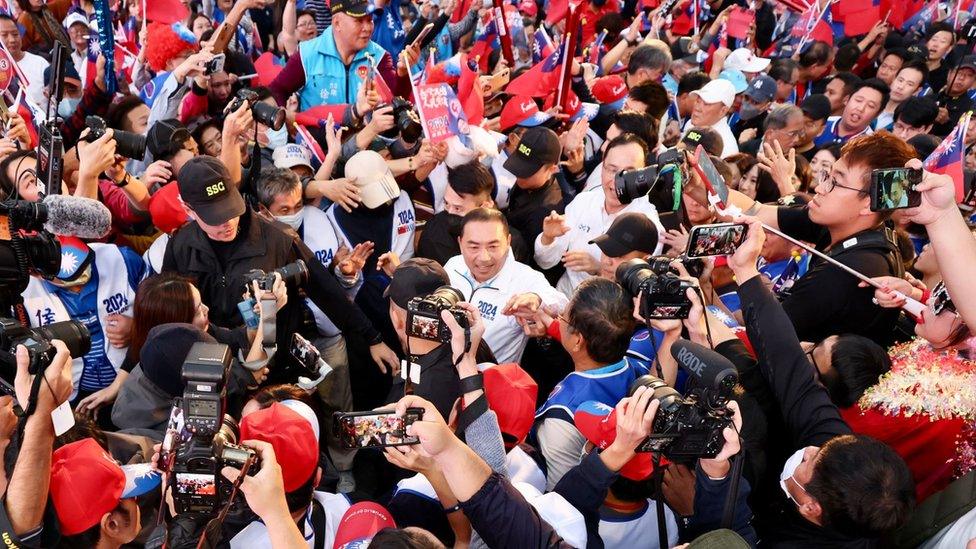
The KMT presidential candidate Mr Hou swarmed by supporters in Kaoshiung city on 7 January
Similarly Mr Jaw, a firebrand "deep blue" media personality who has in the past advocated unification, said recently that China and Taiwan's systems were "too different" and promised voters he would not push for it if he became vice-president.
But the KMT is still seen as running several risks.
For one, its rhetoric closely echoes China's language, which may not be a good look to some voters.
Top Chinese official Song Tao said in November that the two sides were facing "a choice between war and peace, prosperity and decline". This prompted the DPP government to claim that China was using the narrative to influence Taiwan in the lead-up to the election.
Beijing has also made its preferences clear, calling the DPP's Mr Lai a "separatist" and "troublemaker".
Another risk is that it is not clear whether a KMT government would necessarily be able to appease Beijing and guarantee peace.
"The KMT believes that it can get Beijing to promise restraint and stick to it. Looking at China's position on Hong Kong, I'm less sure about Beijing's willingness to commit to anything," said Ian Chong, a non-resident scholar at Carnegie China.
"If KMT wins, maybe temporarily Beijing will ease off. But ultimately they want control of Taiwan, either through economic dependence, or show of force and intimidation."
This also represents a problem for the KMT in the long term. With each generation, the gulf widens between what voters want for Taiwan's relationship with China, and what the KMT has stood for.
The war and peace narrative is "the reflection of a party trying to reconcile two different sides of itself and trying to present a coherent argument to voters," said Dr Chong.
"But there is also a natural tension between where the KMT is going as a party and where voters are going. They will have to decide what kind of party they are: the Chinese Nationalist Party?" he said, referring to the Kuomintang's official English name.
"Or is it happy to be a Taiwan nationalist party?"
Read more about the Taiwan election:
- Published14 October 2024
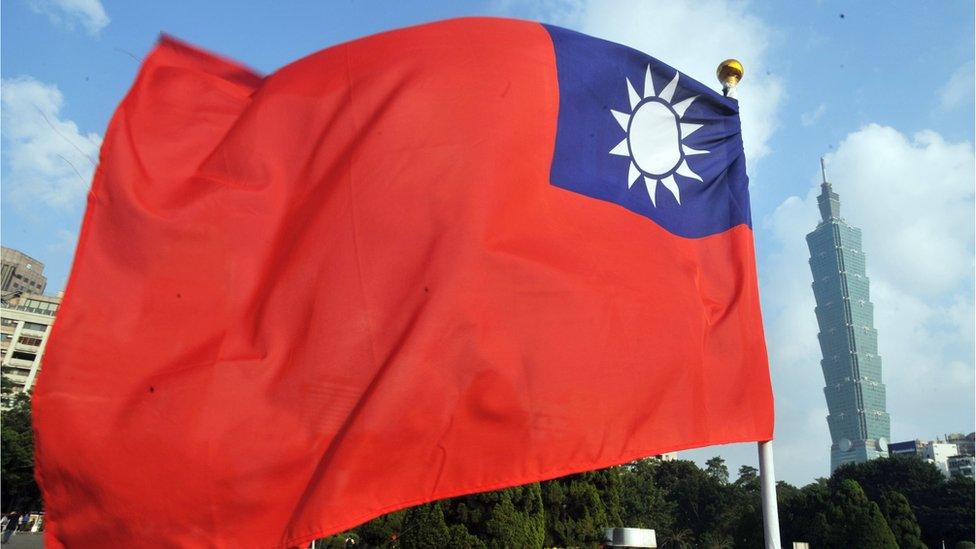
- Published8 January 2024
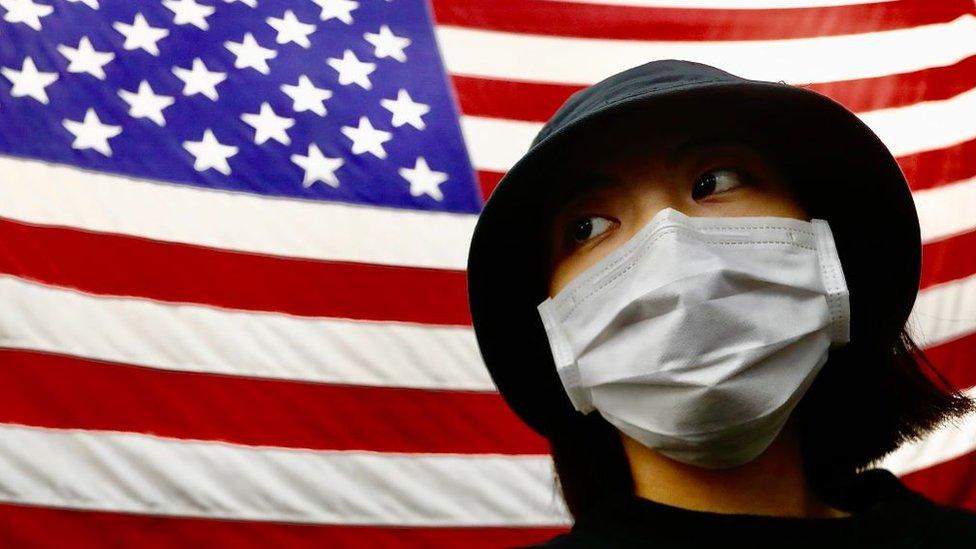
- Published6 January 2024
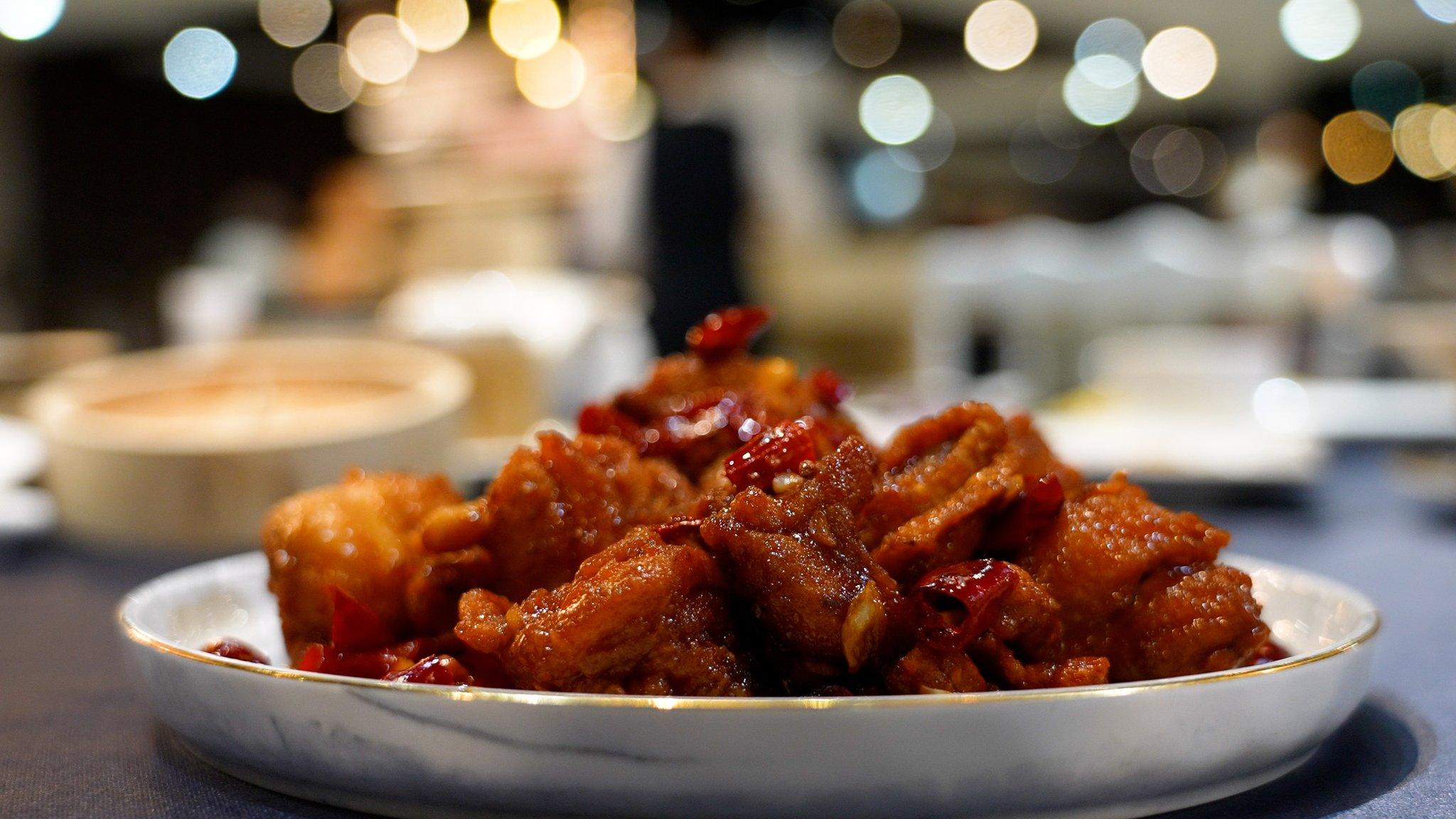
- Published5 January 2024
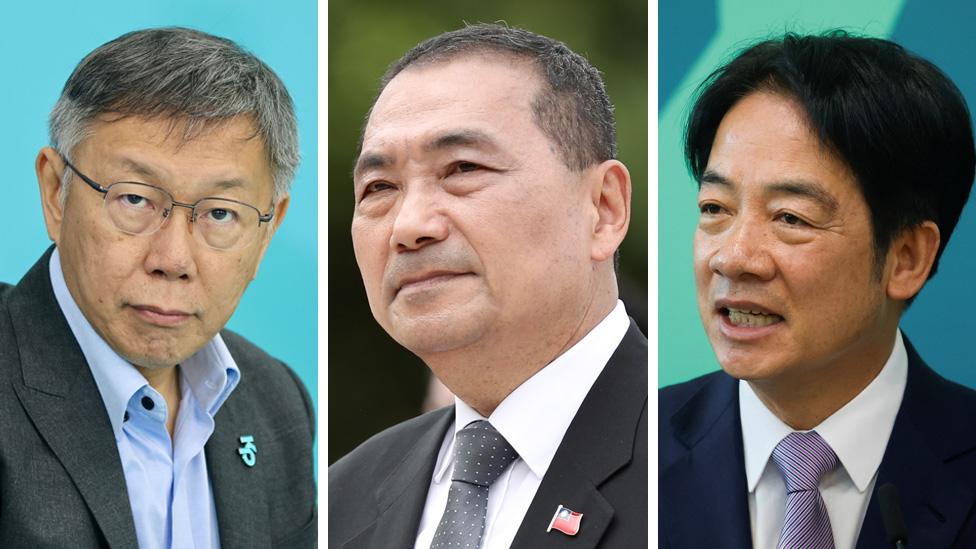
- Published29 December 2023
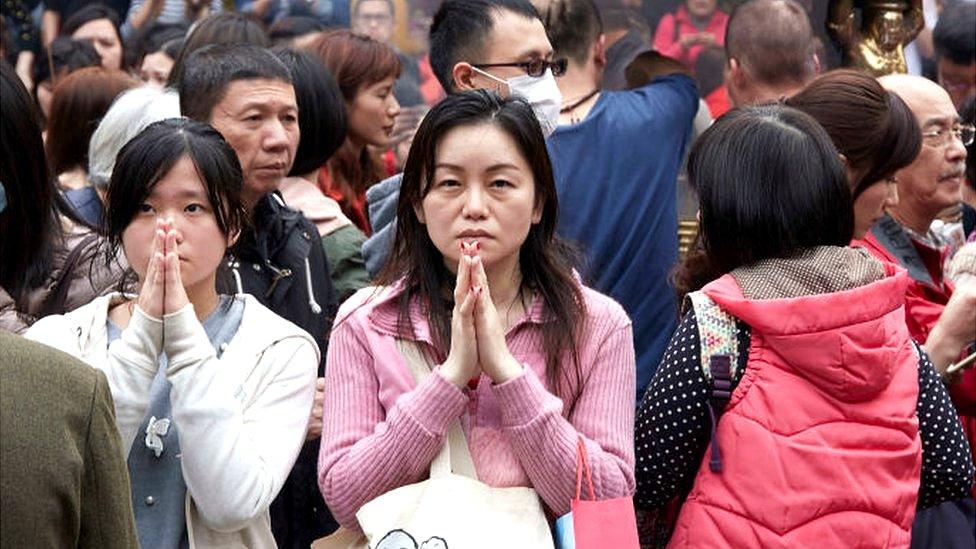
- Published27 December 2023
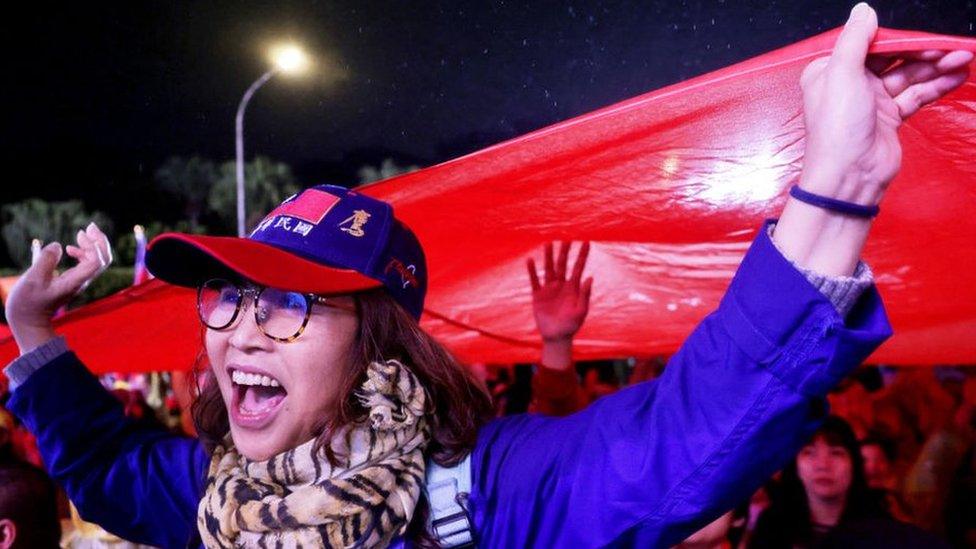
- Published4 October 2023
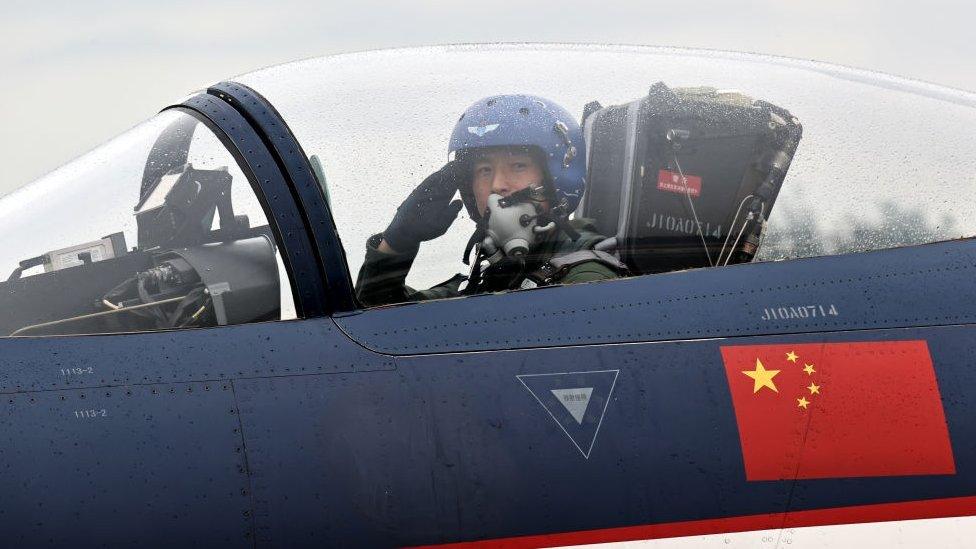
- Published28 September 2023
